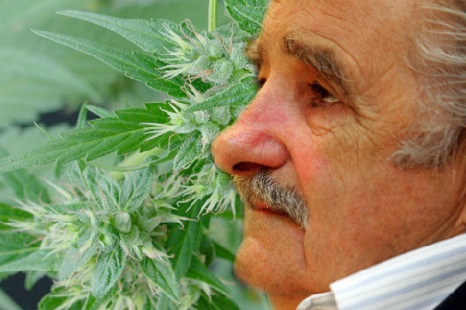This week, the lower house of representatives in Uruguay passed a bill that would legalize marijuana for all residents. The proposal would see the state purchasing marijuana from licensed growers and allows individuals to grow 6 plants for personal use. Uruguay’s decision comes after decades of failed drug policy as the country is in the middle of the route for massive trafficking. But it’s not only Uruguay who is looking to change its policy toward the drug; Mexico President Enrique Peña Nieto has called upon the entire hemisphere to re-examine its stance toward drug prohibition. It is well understood that the demand for drugs in the U.S. has allowed for violent drug cartels to gain immense wealth and even enact some de facto law in regions throughout Central and South America. In Mexico alone, nearly 50,000 people died due to drug related violence between 2006 and 2011. If marijuana is legalized, the thinking goes, then at least some of the money that has been going into the hands of drug traffickers will now go to the State. Uruguay, with a population of around 3 million, is the perfect testing ground for legalization, and as the greater region leans toward this stance, it will be interesting to see how Obama and future Administrations react.
Michigan House Bill NO. 4391
It may just be easier to collect and analyze tears.This legislation seeks to integrate saliva...











